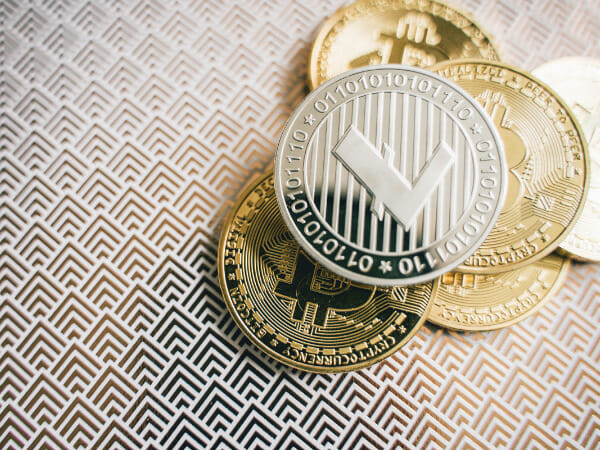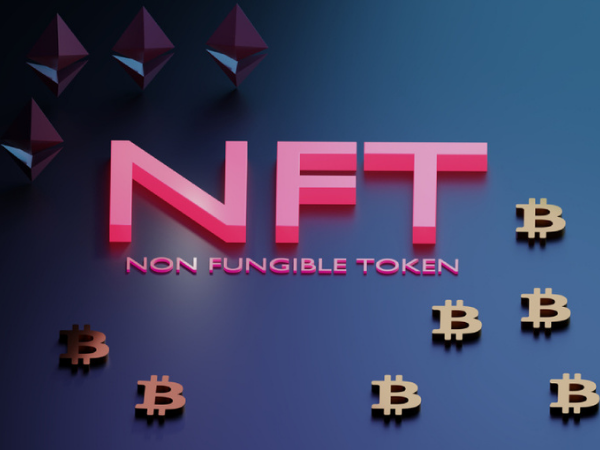Haven’t filed NFT taxes yet? Here’s how it works.
You can’t stop progress, so the NFT trend continues to spread across the world. Nowadays, you can find new projects springing up on the internet. However, taxes are another inevitable thing that these new creators must remember.
Countries are writing new laws regarding these digital assets and media, so it’s best to know the ones implemented in your area. Specifically, this article will talk about how NFT taxes function. That way, you can continue to benefit from these digital items while complying with the law.
We will start by discussing how cryptocurrencies and non-fungible tokens work. After that, we will talk about the taxable events for NFTs in the United States. We will also cover US crypto laws since dealing with NFTs involves digital currencies.
How does cryptocurrency work?

NFTs or non-fungible tokens rely on crypto networks, so we will have to talk about how the latter first. Despite growing crypto adoption, many people still can’t understand both.
This overview will make sure that everyone is up to speed with these concepts. Consequently, readers will have an easier time understanding NFT taxes later.
The first one is bitcoin (BTC), and Satoshi Nakamoto started it in 2009. It was supposed to be a replacement for the current financial system of the world.
Instead of relying on banks and governments, regular people will pitch in to help operate it. They would take on the role of miners by confirming bitcoin transactions.
They would rush to get the code that can break the encryption of each exchange. The first one to get the “winning solution” will get to add a new block of data to the crypto network.
This is where it got its other name “blockchain.” More importantly, the winner gets proof-of-work which lets him gain more bitcoins as a mining reward.
Sine 2009, bitcoin went through several upgrades. Nowadays, we have so many new cryptocurrencies that we have enough for a trading market.
This is why cryptos can do so much more than serving as a means of exchange and store of value. Specifically, it now allows us to create, buy, and sell NFTs.
What are non-fungible tokens?

Photo Credit: coingape.com
These are objects that have their ownership tied to a blockchain. This allows the owner to have a unique copy despite numerous free replicas available.
You may recall them as pieces of digital art. After all, most news reports talk about how a person made millions of dollars selling their piece of art as a non-fungible token.
Yet, they have so many other use-cases. For example, they can prevent ticket scalping, a practice where people buy event admissions in bulk to resell them at a higher price.
If a ticket is an NFT, it will only work for its initial buyer. As a result, It discourages people from dealing with scalpers. Since NFTs are more prevalent as digital art, this article will stick to that definition.
More people have been making a lot of money from this medium. That’s why we see so many new projects popping up like the Azuki NFT collection.
Eventually, this caught the eye of governments around the world. That’s why people now have to pay taxes for their NFTs, especially folks from Australia and Canada.
Read More: What Is The OpenSea NFT Marketplace?
Do NFT taxes work in the US?
It’s Tax Tip Tuesday!
This week, learn more about how NFTs are taxed. TLDR; the taxes will be different for investors and creators. Here’s what you need to know 👇https://t.co/Ez2IGw9yWC
— Coinbase 🛡️ (@coinbase) February 8, 2022
The United States now has laws on cryptocurrency transactions, but its taxes on NFTs are still unclear. At the time of writing, the Internal Revenue Service (IRS) hasn’t released specific rules for non-fungible tokens.
Troy Lewis is an associate professor of tax and accounting at Brigham Young University, and he said that NFTs don’t fall neatly into the current IRS rules.
The Internal Revenue Service lists art and other pieces of “tangible personal property” as collectibles subject to tax. However, NFTs are also intangible because they exist in a digital space.
Lewis confirmed it in a CNBC interview by stating, “It’s not well settled yet because it’s still a brand-new area.” Yet, the United States still has some form of “NFT tax.”
The US can’t charge money for the creation of non-fungible tokens. However, the following actions may increase or decrease a person’s NFT taxes:
NFT taxes for creators
The US government can’t charge you money for designing an NFT. After all, you’re still just drawing what the finished product will look like.
However, the NFT taxes start once you turn your art into an NFT. This is called minting, and you will have to a certain amount of cryptocurrency, so you can convert your art into this format.
The Ethereum (ETH) network is the number one go-to for this type of digital medium. It hosts many of the NFT marketplaces and blockchains active right now.
This means you’ll have to buy Ethers, Ethereum’s native cryptocurrency. You will also receive payment for your work in ETH coins. Nowadays, more places let you spend it directly.
Still, you will probably turn it back into US dollars. That’s when you start encountering the events for NFT taxes, such as:
Selling your NFT
Turning your cryptos into fiat falls under IRS laws because it becomes a source of income. You may have to also pay self-employment taxes worth 15.3% of your total earnings
This happens if all your profits went above $400. The Internal Revenue Service may also charge estimated quarterly tax payments if you owe at least $1,000.
Deducting expenses
The good news is that creators can also reduce their NFT taxes. You can file deductibles since you will have to pay various fees for your work, such as gas fees, auction fees, and listing fees.
NFT taxes for investors
This form of digital art is becoming more popular, but most of its buyers still come from long-term investors. Unlike creators, they handle more complicated tax issues.
As mentioned, you don’t get taxes when you buy cryptos. If you buy stuff with that digital currency, you will have to pay taxes. This applies when you’re buying non-fungible tokens.
This means you’re liable for taxes on any gains you make on your purchase. On the flip side, you can reduce your taxes if you incur losses.
How do US crypto taxes work?
NFT taxes got you confused? 😵💫🤨
With CoinTracker as @opensea's official partner for taxes, worry no more. Plug in your accounts and collect your forms. 💯 https://t.co/88bZc8OnE7
— CoinTracker (@CoinTracker) March 26, 2022
If you buy and sell non-fungible tokens, NFT taxes aren’t the only things you should consider. That’s because cryptocurrencies and this digital art form are closely related.
This is why you must understand how crypto taxes work in the United States. It considers cryptocurrency as a source of income and a capital asset, so you’ll have taxes from both instances.
Crypto taxes for sources of income
- As mentioned, turning cryptos into cash triggers taxes.
- You will also have to pay the government whenever you buy with cryptos.
- Swapping your cryptos for others also requires taxes. Let’s say you have bitcoins and you want to buy Solana (SOL) tokens with those. Once you make the exchange, you will have to pay taxes.
- Do you remember how people can earn more bitcoin by confirming transactions? This action is called crypto mining, and you will also have to pay taxes for it.
- Some cryptocurrencies don’t use the proof-of-work model. Instead, they allow people to stake their coins by depositing them as you do on a savings account.
Related Articles
Crypto taxes for capital assets
You can buy non-fungible tokens with cryptos, so you have to pay NFT taxes. However, cryptocurrencies also work like stocks since you’ll have to pay capital gains taxes for them.
If you’ve only held your coins for less than a year, you’ll have to pay short-term capital gains. Hold them for more than a year, and you’ll have to pay long-term capital gains taxes.
We will digress from NFT taxes if we talk more about cryptocurrency taxes. If you’d like to know more about them, click here.
Final thoughts
At the time of writing, the IRS hasn’t explicitly released any specific laws regarding taxes on NFTs. That’s why many of them seem to be crypto taxes that apply to NFT transactions.
If you live in another country, you probably have more comprehensive laws regarding these digital assets. In that case, make sure to read your national laws on NFT taxes and follow them.
Note that this article is not meant to provide investment advice. If you’d like to add cryptos or NFTs to your portfolio, please speak with a financial advisor for professional assistance.

